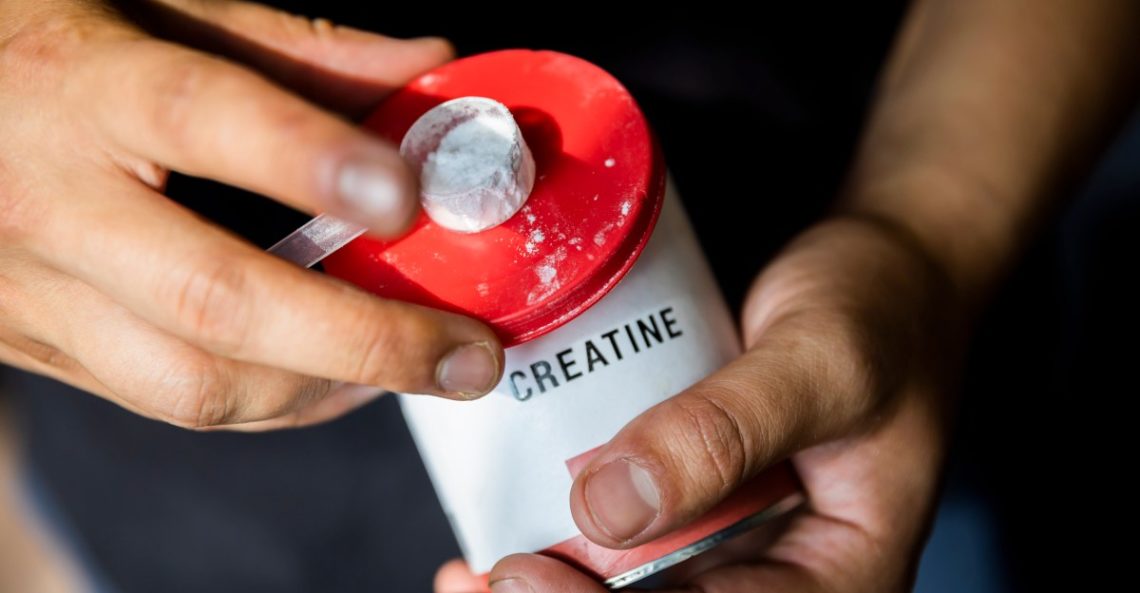Creatine — yes, the favorite of gym rats everywhere, a supplement many of us have taken ourselves — is a naturally occurring compound that is already found inside each person. Scientists have been studying creatine since the 1830s and, for more than a century, we have known that it was pivotal for producing energy in our muscles.
That, as anybody who was alive in the ’90s may remember, is how creatine first exploded as a consumer product. Swedish researchers published influential research in 1992 demonstrating creatine supplementation’s effectiveness in improving stamina and recovery during the short bursts of physical exercise. It didn’t take long after that for creatine supplements to hit the shelves of drugstores and workout gyms nationwide. And it was popular. Not only was it cheap — a 10-ounce jar of creatine costs $17 on Amazon — but it was also an easy way for bodybuilders and exercise enthusiasts to improve their performance. Today, as many as one in four adults say they have used creatine; $400 million worth of it is sold in the US every year.
And this was a supplement that really worked: A 2018 meta-analysis of the available research concluded that creatine is “the most effective nutritional supplement available to athletes to increase high intensity exercise capacity and muscle mass during training.” Across years of studies, no dangerous side effects have been detected.
But the most surprising use of creatine supplements is in a setting that could not be further from the image of jacked-up bodybuilders pumping iron: treating depression.
In the early 2000s, scientists established creatine’s importance not only for muscle use but also for brain function. The compound helps your brain to convert nutrients into energy and scientists concluded that poor metabolism could help to explain various psychiatric disorders, including depression. In layman’s terms, if your brain wasn’t processing energy efficiently, it could have these negative side effects.
If that were true, it would follow that more creatine could improve a person’s brain metabolism and thereby ease their depression.
A decade ago, the first clinical trials began testing whether creatine supplements improved depression among people who were also receiving antidepressants and cognitive behavioral therapy. The results have been impressive: A 2024 meta-review concluded that creatine had proven its effectiveness in supplementing those other treatments, leading people to feel better more quickly and be less likely to experience depression again.
Now comes a new study, out of India, suggesting creatine could be helpful in treating depression without antidepressants being involved — a preliminary but potentially important finding as we search for cheaper and easier ways to provide help to more people who need it.
A fascinating new creatine depression study in India
The study, published earlier this year, was tiny and flew under the radar: 100 participants, in Dehradun, a city of 800,000 in India’s far north. Lead researcher Nima Norbu Sherpa of Glasgow Caledonian University received a grant from an India-based charity, the Universal Human Rights and Social Development Association, to run the experiment.
The setting is telling: Part of creatine’s appeal in mental health treatment is not only its potential efficacy but also that it’s cheap and doesn’t require a professional clinician; patients can take it on their own. That made Dehradun, a developing city with a lot of low-income patients and relatively few mental health clinicians, a logical place to test whether creatine could improve people’s well-being without antidepressants, said Riccardo De Giorgi, a clinical lecturer in psychiatry at Oxford and co-author of the paper.
The 100 participants, recruited from the city and small surrounding villages, were split into two groups. Both groups took part in talk therapy sessions. One group also received 5 milligrams of creatine every day, while the other got a placebo.
After eight weeks, both groups were improving — cognitive behavioral therapy itself is, of course, a well-attested treatment for depression. But the patients who took creatine on top of their therapy were doing better still.
The participants answered a nine-question survey at the beginning of the study, which provided a one-number score of the severity of their depression symptoms. People in both groups started a little below 18 on average, indicating moderately severe depression. At the end of the study, the patients taking creatine reported a score of 5 on average, while the control group registered at 11. Eleven people who were taking creatine throughout the study reported going into remission, meaning they could effectively return to normal life; only five people taking placebos said the same.
Both groups had about 20 people discontinue their treatment — not uncommon for people with depression, the authors noted. The reported side effects for people taking creatine were mild.
It is an eye-catching result, even as De Giorgi emphasized repeatedly that the findings were “incremental and preliminary.” The inevitably sensational nature of the finding — a bodybuilder supplement can help with depression? — warrants being clear and cautious in how we interpret the findings.
“Previous sensationalist messages in this research area, e.g., creatine, physical exercise, keto diet, have caused more harm to the science than benefit,’” De Giorgi told me over email.
For one, the high dropout rate is reason for skepticism about the precise size of creatine’s effect. More research that replicates the same results is needed before we can be confident that creatine plus therapy is a winning combination.
But it’s an area of research worth watching. Peter Attia, a physician who writes about longevity and health enhancement and was not involved with the study, wrote in covering the study’s findings that “since many people already use creatine as part of their supplement routine, it could be an easy addition for those looking to improve mental health without major lifestyle changes.” Its affordability and ubiquity could also make it appealing for people with fewer resources, like those who participated in the India study.
He did, however, also caution that more evidence would be necessary before we can figure out whether and how creatine fits into “the therapeutic toolbox.”
As we grapple with a global mental health crisis, we need all of the tools we can find. More than two-thirds of the world’s population can’t get access to conventional mental health treatments. If we really have an alternative as cheap and available as creatine, it could make a real difference.
The post Could this $10 weightlifting supplement be a depression treatment? appeared first on Vox.




